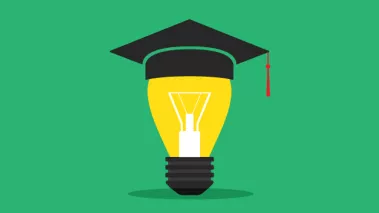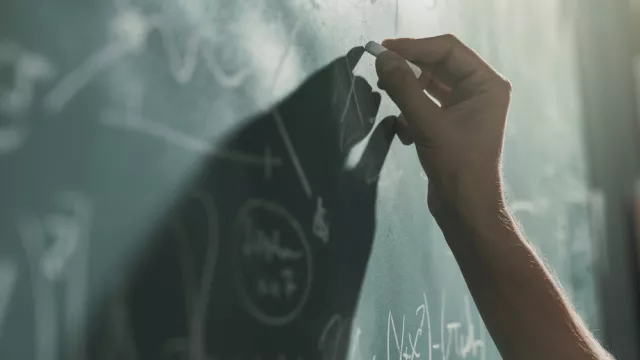Table of Contents
‘The foundation of intellectual discovery’: The role of academic freedom in civil society

Academic freedom refers to the ability of educational institutions, professors, and other scholars to pursue knowledge without unreasonable interference from the government or, in the case of individual faculty members, from within educational institutions themselves.
The American Association of University Professors defined academic freedom in its 1915 Declaration of Principles on Academic Freedom and Academic Tenure as consisting of three elements: “freedom of inquiry and research; freedom of teaching within the university or college; and freedom of extra-mural utterance and action.”
The Organization of American Historians defines it as “the principle of freedom of expression for scholars engaged in discipline-related teaching, learning, research, publication and service” and “the foundation of intellectual discovery.”
As these definitions explain, academic freedom should be enjoyed by colleges, faculty members, and students. Colleges and universities should have the freedom to operate their own academic affairs. They should be free to create their own unique places of learning, not confined to any one-size-fits-all cult of conformity.
"That freedom is therefore a special concern of the First Amendment, which does not tolerate laws that cast a pall of orthodoxy over the classroom." — Justice William Brennan
Meanwhile, professors should be able to espouse unpopular views inside and outside of the classroom without fear of retaliation for not adhering to orthodoxy. Professors should possess freedom of thought and inquiry to explore difficult ideas and push boundaries without the chilling effect of censorship.
Students also should possess the academic freedom to explore new ideas and to learn, free from indoctrination.
The Supreme Court on academic freedom
Supreme Court Justice Felix Frankfurter, himself a former Harvard law professor, waxed eloquently about the importance of academic freedom in the case of Sweezy v. New Hampshire (1957). The case concerned the New Hampshire attorney general’s invasive inquiries into the past associations of University of New Hampshire professor Paul Sweezy. The attorney general suspected Sweezy of subversive activities for his alleged association with the Communist Party. Chief Justice Earl Warren explained:
The essentiality of freedom in the community of American universities is almost self-evident. No one should underestimate the vital role in a democracy that is played by those who guide and train our youth. To impose any strait jacket upon the intellectual leaders in our colleges and universities would imperil the future of our Nation. No field of education is so thoroughly comprehended by man that new discoveries cannot yet be made. Particularly is that true in the social sciences, where few, if any, principles are accepted as absolutes. Scholarship cannot flourish in an atmosphere of suspicion and distrust. Teachers and students must always remain free to inquire, to study and to evaluate, to gain new maturity and understanding; otherwise, our civilization will stagnate and die.
In short, academic freedom is essential for the university’s function. The Supreme Court expanded upon this principle in the case of Keyishian v. Board of Regents (1967) when it struck down a loyalty oath requirement imposed upon faculty members at institutions of higher learning in New York. As Justice William Brennan explained:
Our nation is deeply committed to safeguarding academic freedom, which is of transcendent value to all of us and not merely to the teachers concerned. That freedom is therefore a special concern of the First Amendment, which does not tolerate laws that cast a pall of orthodoxy over the classroom.
Garcetti and academic freedom
Another issue that arises in academic freedom cases is the impact of the Supreme Court’s public employee decision in Garcetti v. Ceballos (2006). The emerging trend in the lower courts is that college and university professors have academic freedom rights that take them outside the categorial rule created in Garcetti.
In Garcetti, the U.S. Supreme Court ruled that public employees have no First Amendment protection when they engage in official, job-duty speech. This ruling, if applied broadly to professors at a public college or university, could apply to in-class speech and research activities, as those are job duties, severely restricting their academic freedom rights.
Professors and students at public universities of course receive more protection than those at private universities, because the protections in the Bill of Rights — including the First Amendment freedoms — limit only governmental or state actors.
Justice David Souter recognized this in his dissenting opinion, warning that the majority’s decision may imperil “academic freedom in public colleges and universities, whose teachers necessarily speak and write pursuant to official duties.”
Justice Anthony Kennedy, the author of the majority opinion in Garcetti, avoided the question of whether academic freedom provided an exception to his new categorical rule. Kennedy acknowledged that “[t]here is some argument that expression related to academic scholarship or classroom instruction implicates additional constitutional interests that are not fully accounted for by this Court’s customary employee-speech jurisprudence.”
Several courts of appeals have rejected Garcetti when it comes to the academic freedom of college and university professors. The U.S. Court of Appeals for the Fourth Circuit was the first circuit to reject Garcetti in the university professor context in the case of Adams v. Trustees of the Univ of N.C.-Wilmington (2011). The appeals court determined that Garcetti did not apply to professor Michael Adams’ case because the speech was related to his teaching and scholarship, areas outside of the traditional public employment context.

FACULTY SURVEY: Support for free speech varies by academic discipline
Faculty in business and STEM fields are more supportive of free speech and academic freedom according to a FIRE survey.
A few years later, the U.S. Court of Appeals for the Ninth Circuit ruled in Demers v. Austin (2014) that “if applied to teaching and academic writing, Garcetti would directly conflict with the important First Amendment values previously articulated by the Supreme Court.” In 2019, the Fifth U.S. Circuit Court of Appeals recognized an academic freedom exception to Garcetti in Buchanan v. Alexander, citing the Supreme Court’s language “pall of orthodoxy” language from Keyishian. Similarly, the U.S. Court of Appeals for the Sixth Circuit held in Meriwether v. Hartrop (2021) that “[s]imply put, professors at public universities retain First Amendment protections at least when engaged in core academic functions, such as teaching and scholarship.”
Professors and students at public universities of course receive more protection than those at private universities, because the protections in the Bill of Rights — including the First Amendment freedoms — limit only governmental or state actors, not private actors. Public universities are state actors, while private universities generally are not.
The clear movement in the federal appeals court is a recognition that academic freedom provides more protection for college and university professors than typical public employees. At some point, the U.S. Supreme Court likely will address this issue and clarify that academic freedom provides a clear exception to the categorical rule created in Garcetti.
As FIRE explained in 2014, hopefully more and more courts will “recognize that the nature of higher education as a marketplace of ideas renders it incompatible with the reduced First Amendment protections generally afforded to government employees.”
Why is academic freedom important?
Academic freedom is essential to colleges and universities, professors, and students. FIRE’s Will Creeley said it best: “Academic freedom is vital to the health of the liberal university. The more people talking about the essentiality of academic freedom for professors in our nation’s colleges and universities, the better.”
Recent Articles
Get the latest free speech news and analysis from FIRE.

FIRE's 2025 impact in court, on campus, and in our culture

The trouble with banning Fizz

VICTORY: Court vindicates professor investigated for parodying university’s ‘land acknowledgment’ on syllabus


